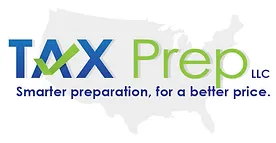As a high net worth individual in Boca Raton, effective estate tax planning is essential for preserving your wealth and ensuring your legacy is passed on to your heirs with minimal tax implications. Estate taxes can significantly impact the value of your estate, prompting many affluent individuals to seek comprehensive strategies to protect their assets and provide for future generations. This article explores essential estate tax planning strategies tailored for high net worth individuals in Boca Raton.
Key Considerations for Estate Tax Planning
Understanding the specifics of estate tax obligations is crucial for effective planning:
Federal Estate Tax Exemption:
As of 2023, the federal estate tax exemption is $12.92 million per individual. Estates valued below this threshold are generally not subject to federal estate tax. However, for those with estates exceeding this amount, the tax rate can be substantial, making proactive planning vital.
Florida Estate Tax:
Florida does not impose a state estate tax, which is advantageous for residents. However, this benefit does not eliminate the need for proper planning to minimize federal estate tax liabilities and ensure your assets are distributed according to your wishes.
Legacy Goals:
Clarifying your legacy goals including how you wish your assets to be distributed, which charitable organizations you want to support, and how you want to provide for your family is essential for effective estate planning. A well-defined vision helps guide your decisions and ensures your intentions are honoured.
Effective Estate Tax Planning Strategies
To minimize estate taxes while ensuring a smooth transition of your wealth, consider implementing the following strategies:
1. Establish a Comprehensive Estate Plan
A robust estate plan should include essential documents such as:
- Last Will and Testament: Outlines how your assets will be distributed upon your death and appoints guardians for minor children.
- Trusts: Establishing revocable or irrevocable trusts can help keep your estate out of probate, reduce estate taxes, and provide privacy and control over your assets after death. Trusts can also protect assets from creditors and ensure long-term management for beneficiaries.
2. Use Annual Gift Exclusions
Take advantage of the annual gift tax exclusion, which allows you to gift up to $17,000 (as of 2023) per recipient without incurring gift tax. Over time, this strategy can effectively reduce the size of your taxable estate, transferring wealth to loved ones in a tax-efficient manner.
3. Consider Charitable Giving
Incorporating charitable donations into your estate plan can benefit your heirs while also reducing your estate tax liability. Gifts to qualified charities can be deducted from your taxable estate, and vehicles such as charitable remainder trusts or donor-advised funds can help you achieve your philanthropic goals while maximizing tax benefits.
4. Utilize Life Insurance Strategically
Consider setting up an irrevocable life insurance trust (ILIT) to remove life insurance proceeds from your taxable estate. This approach can provide liquidity to pay estate taxes and other expenses, ensuring your heirs are not forced to sell valuable assets to cover tax obligations.
5. Establish a Family Limited Partnership (FLP)
A family limited partnership allows family members to transfer interests in the partnership at discounted values, thus reducing the overall value of the estate for tax purposes. FLPs can also facilitate the gradual transfer of wealth to the next generation while maintaining control over the assets.
6. Leverage Portability and Generation-Skipping Transfer (GST) Tax Exemptions
Married couples can take advantage of the federal estate tax exemption portability, allowing any unused exemption from the first spouse to pass away to be transferred to the surviving spouse. Additionally, the GST tax exemption can help you transfer wealth to grandchildren or future generations without incurring additional taxes.
7. Plan for Business Succession
If you own a business, a well-structured succession plan is critical. Consider strategies such as buy-sell agreements, business valuation, and the use of trusts to ensure a smooth transition and minimize estate tax exposure.
Common Mistakes to Avoid
Avoid these common pitfalls when planning your estate:
- Failing to Review Your Estate Plan Regularly: Changes in tax laws, family dynamics, or personal circumstances can affect your estate plan. Regular reviews ensure it aligns with your current goals and legal requirements.
- Overlooking Estate Tax Implications: Every decision regarding asset distribution can impact estate taxes. Consult with professionals to evaluate the tax implications of your estate plan and make informed choices.
- Neglecting to Communicate with Heirs: Ensure your heirs understand your wishes and involve them in the planning process to mitigate conflicts and misunderstandings. Open communication can prevent disputes and ensure a smooth transition.
Example Scenario: Case Study
Consider the case of Robert, a high net worth individual in Boca Raton:
Robert established a comprehensive estate plan, including a revocable trust, and regularly gifted assets to his children using the annual exclusion. He also made charitable donations through a donor-advised fund and set up an irrevocable life insurance trust. As a result, Robert minimized his taxable estate, provided for his heirs, and fulfilled his philanthropic desires; all while ensuring a smooth and tax-efficient transfer of wealth.
The Importance of Professional Guidance
Estate tax planning is complex and requires a thorough understanding of federal and state laws, as well as your unique financial situation and goals. Working with experienced estate planning professional including attorneys, tax advisors, and financial planners can help you develop and implement strategies tailored to your needs. Professional guidance ensures your plan remains current, compliant, and effective in achieving your legacy objectives.
Conclusion
Estate tax planning is an essential undertaking for high net worth individuals in Boca Raton. By establishing a comprehensive estate plan, leveraging tax exemptions, considering charitable giving, and working with experienced professionals, you can reduce tax liabilities and ensure your legacy is honoured for generations to come.
Are you ready to take control of your estate planning? Contact us today for a personalized consultation and let our team help you develop a comprehensive estate tax plan that maximizes your legacy while minimizing tax implications. Secure your family’s future and achieve peace of mind with expert estate planning tailored to your unique needs.



